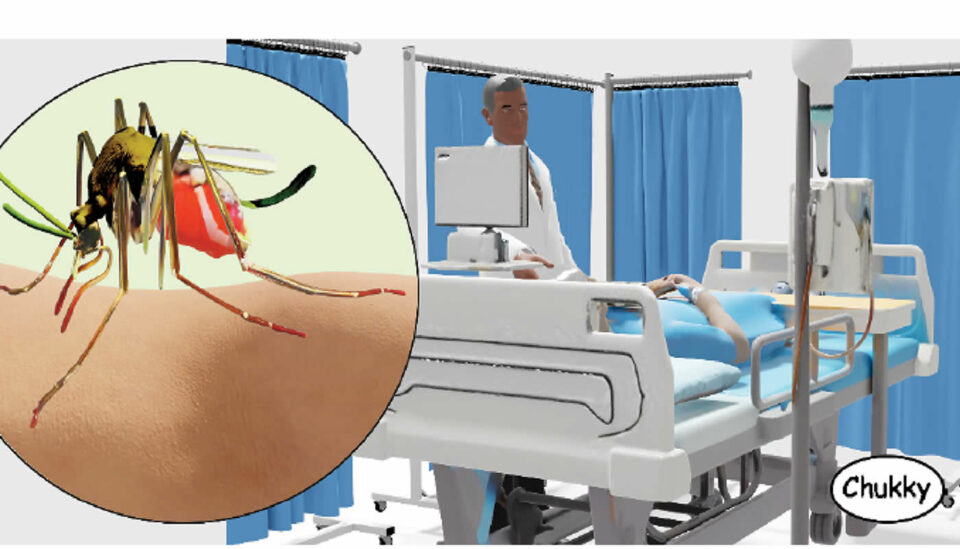
When 22-year-old Ifeoma Adindu, a final-year Biology Education student at a university in the South-East, developed a high fever, body aches and a rash in late June, her family assumed it was malaria or, at worst, typhoid, which are the regular twin suspects usually associated with a fever.
“I swallowed several antimalarial drugs. Carried out several tests, and the results indicated I had malaria. One even showed I had an infection in my bloodstream. I took some drips, but there was no improvement,” she recounted.
After several weeks, Adindu decided to visit a specialist clinic in Awka, Anambra State, and after a few more tests, the real culprit was found to be dengue fever.
“When they told me I had dengue fever and had to be hospitalised, I agreed immediately because it could be fatal. I didn’t really understand how I contracted the ailment. I felt so terrible and had lost so much weight. The headaches were splitting. I couldn’t sleep. I thought I was going to die. The doctors kept saying all I needed was fluid, as there really was no certain known treatment per se,” she added.
or many Nigerians, dengue fever remains an unfamiliar name despite its devastating reach across the tropics. Experts warn that climate change, poor waste management and inadequate surveillance are fuelling a quiet surge.
Dengue fever explained
Dengue is a viral infection transmitted primarily by the Aedes aegypti mosquito, the same mosquito responsible for yellow fever and the Zika virus.
According to the World Health Organisation, in a 2023 publication, an estimated 390 million infections occur annually worldwide, with around 96 million showing clinical symptoms.
While long thought to be confined to Asia and Latin America, dengue is now expanding across sub-Saharan Africa, including Nigeria.
Symptoms often mimic malaria: high fever, severe headache, joint and muscle pain, nausea, vomiting, swollen glands and rash.
In its severe form, dengue haemorrhagic fever may occur, and patients may suffer bleeding, plasma leakage, organ impairment and even death.
Re-emerging public health threat
For decades, dengue fever received little attention in Nigeria. A survey conducted by this reporter revealed that many Nigerians, especially in rural households, were not familiar with the disease.
When our correspondents went round markets on Lagos Island and Ajah, most traders said they were familiar with malaria and typhoid and had never heard the name ‘dengue fever’, wondering if it was a new illness or a strand of COVID-19.
